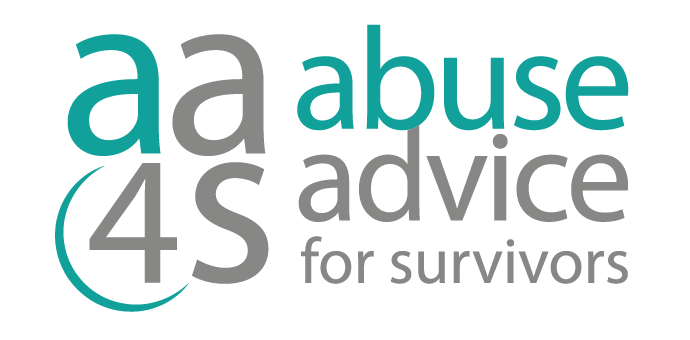ABUSE IN A RELIGIOUS SETTING
In church type situations, the act of sex which takes place in a building devoted to worship carries with it overtones of ungodliness and lack of respect for the setting.
Choir boys who are sexually abused in vestries, near the altar, whilst the vicar or priest are religiously robed, as may be the boy or girl, can bring about revulsion for the religion itself, and phobias revolving around the setting of the abuse.
The shock that a member of a respected organisation can commit sexual offences with a child within his trust/care carries with it an extra psychological effect due to the fall from respect of the officer of a religious body, who is worshiped, often by his congregation.
THE PROCESS
Abusers start by gaining the trust of a child. He will probably have found a way of infiltrating the child's environment through, for example volunteering in over worked and under staffed environments. In the family context he may express an interest in the child's activities and offer to help develope them. For busy parents and needy children this can be an inviting offer.
Gradually the abuser, once having become a trusted friend, takes the child away from the safety of parents, or his peers if in a boarding school to do some special one to one activity which is fun and enticing.
The child may be pubescent and interested in sex but not know what it involves. The abuser persuades him that masturbation and pornography are a normal healthy activity which should be enjoyed, as should free love.
The whole process is gradual. Whilst the child may suspect that what is happening is wrong he or she may not have the confidence and courage to resist what is happening. Indeed abusers usually choose the weak and vulnerable child as an easier victim than the confident loud child who may blow his cover.
The child is showered with affection by this trusted adult. He is given money and gifts. Particularly in the children's home environment the child may have led a deprived upbringing such that this new attention is very much welcomed.
Eventually, inevitably, the affection leads to sexual abuse. By this time it may be too late to back out as the child is ensnared.
The relationship usually ends with the abuser finding the child no longer attractive because he or she has grown up and is out of his preferred age range. Sometimes the child grows up and realises that what is happening is wrong. Not infrequently, however, the relationship continues into adulthood.
DEFINITION
We thank NAPAC (National Association for Prevention of Abuse in Childhood) for allowing us to use this and other definitions
"Childhood sexual abuse (CSA) is when a child or young person is pressurised, forced or tricked into taking part in any kind of sexual activity by an adult, or another child.
CSA involves contact or non contact activities.
What can sexual abuse include?
Contact CSA
- Inappropriate kissing
- Touching a child’s genitals or breasts
- Encouraging a child to touch another’s genitals or breasts
- Vaginal or anal intercourse
- Oral sex
- Watching or encouraging children to engage in sexual activities
Non contact CSA
- Explicit sexual talk
- Showing pornography
- Lack of privacy to bath or undress
- Exposing sexual organs to the child
Examples of locations where sexual abuse can occur
Sex offenders/paedophiles will be attracted to any location where there are children for the simple reason that rather than liking the same or the opposite sex, they have sexual desires towards children, usually of a particular age.
One usually finds religious sexual abuse taking place in any situation where a sex offender can get a child on his/her own in private, for example
- Within the religious building eg. in the vestry or robing room
- In a car during a trip
- In the representative’s lodgings
- On a holiday organised through the religious body
What effects does sexual abuse have on a victim?
- A child may display over sexualised behaviour.
- A child may also develop physical symptoms such as anal or vaginal soreness, an unusual discharge, sexually transmitted infection (STI) or pregnancy
- An adult usually displays some sexual identity confusion as they reach adulthood.
- The realisation of what they have experienced also causes feelings of intense anger and guilt. They wish they had had the power and control to stop it happening, but it is too late because the events have happened and the harm has been done.
- The feeling of wishing they have exerted more control over an older more powerful adult remains into adulthood, and leads to mental health problems such as,
- Inability to trust the same or the opposite sex with all the attendant relationship problems.
- Over protective attitude to offspring, particularly when they are the same age as the victim was when they were abused
- Low Self Esteem which leads to various personality disorders
- Nightmares and flashbacks
- A need to emotionally anaesthetise oneself by using alcohol and drugs.
- Sexual addiction and other sexual deviances.
- Replication of grooming methods taught by the abuser particularly where the abuse takes place at puberty.
- In a small minority of cases the abused can turn into a sex offender him/herself.
- Self Harming, and Eating Disorders
- Conflicts with authority such as police, any official, and particularly employers with the consequent ill effects on their ability to lead a constant employment in any particular job.
- Depression, Obsessive Compulsive Disorder, arguably Schizophrenia, various psychological disorders, Irritable Bowel Syndrome.
- In extreme cases, damage to genitals.
What prevents a victim of sexual abuse coming forward for many years until later in life?
Our clients are typically aged between 35 and 55. They often keep the abuse a secret for many years until triggered into doing something about it by various events, which are too numerous to list, but which can include the birth of their own child.
The strict time limit for starting legal proceedings is the age of 21 where the abuse happened in childhood. We routinely have to argue that a case ought to be allowed to proceed exceptionally out of time. We often argue that:-
- The very act of abuse we are complaining about caused a delay for various reasons
- In religious abuse cases, an extra impediment lies in misplaced loyalty to the religion. Fear of being sent to Hell, or repercussions of a religious nature can compound secrecy.
- The abuser often threatens the child with various dire consequences should they make any disclosure of what happened. The child is told they will not be believed. Often they try to make a complaint, and are not believed, thus reinforcing the belief that the abuser was right. This strengthens the mental hold the abuser has on the child.
- In Satanic Abuse cases, fear of actual punishment, and the threats of powerful individuals can also ensure silence.
- Often the abuser plays mental games with the child in order to “put them under his/her spell”. They create an intense feeling of undying loyalty in the child which can last into later life, and keeps them silent.
- Shame and embarrassment of the occurrence of a homosexual act by an older man on a young boy can often ensure the silence of the victim for many years, particularly against a background where homosexuality is shunned by society.
- Sometimes psychological disorders such as dissociation, or defensive avoidance, can be justified in a medical report and be used in a legal case to support a time delay argument."










